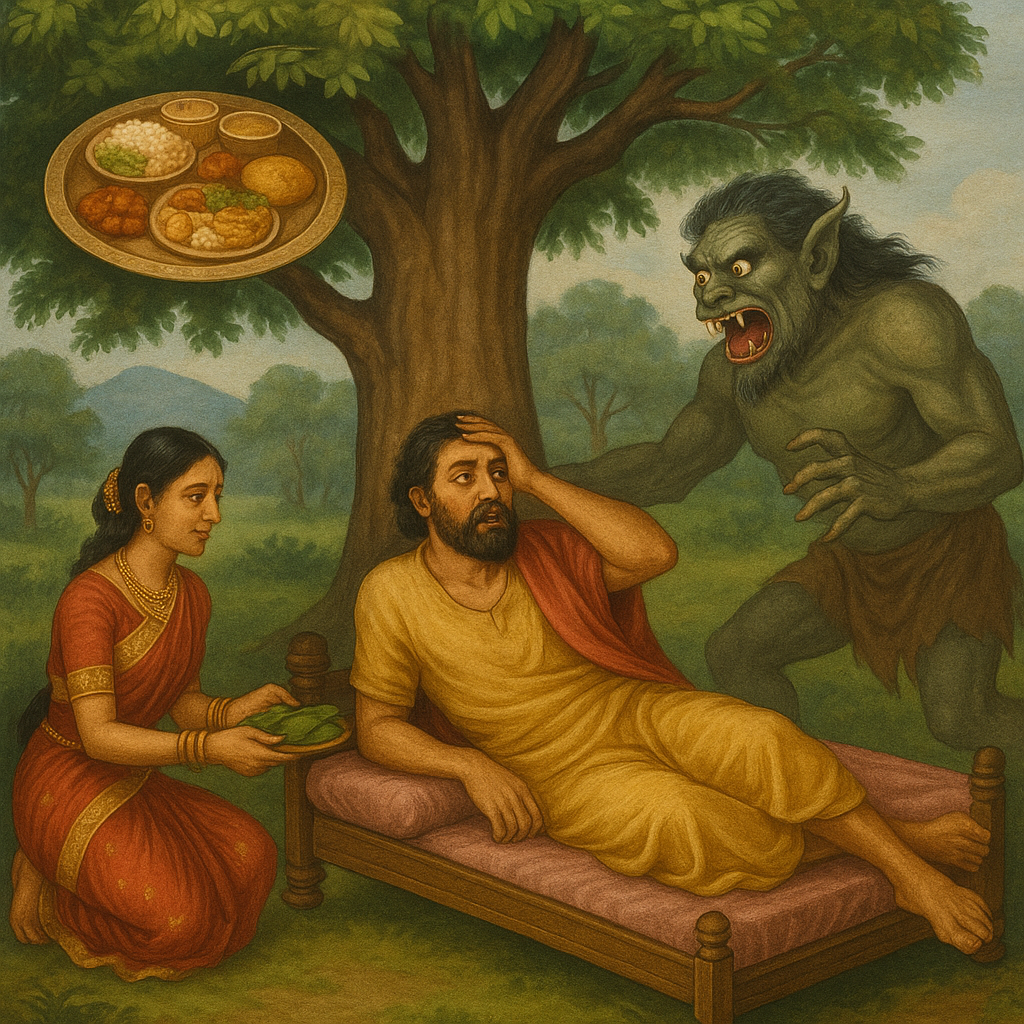Some disciples proudly proclaim that they are very close to their Gurudev—that they constantly enjoy the fortune of seeing him, touching him, and conversing with him. But as Gurudev himself once explained: if you keep water in one glass and sugar in another glass side by side for any number of days, will the sweetness of the sugar enter the water on its own? Likewise, if we do not truly absorb the Guru’s teachings, practice the path shown by him, and attain inner spiritual growth, then no matter how long we live in the Guru’s physical proximity, our inner vices and weaknesses will not disappear.
Moreover, Gurus are physicians who cure the disease of worldly existence. A doctor keeps a severely ill patient in the hospital for a long time, sometimes even under constant ICU supervision. But a person with a minor ailment is examined for a few minutes, given medicine, and sent home. In the same way, a very dirty cloth has to remain longer in the washerman’s care to be properly cleaned.
We also know that even those who attained nearness to God—such as salokya, samipya, and sarupya—fell away when they failed to attain Self-knowledge and overcome their inner traits. Jaya and Vijaya were not merely residents of Vaikuntha; they were gatekeepers of the Lord’s inner sanctum, enjoying intimate proximity (samipya) and even likeness (sarupya), possessing four arms like the Lord and bearing the conch, discus, and mace. Yet, unable to rid themselves of ego, they incurred a curse. As a result, over three births, all the evil tendencies hidden within them surfaced and were washed away. Only after becoming pure, like a thoroughly cleansed garment, did they regain the Lord’s presence.
In their first birth, as Hiranyaksha, there is no mention of him being married or having a family—yet he was consumed by the desire to possess the entire earth. What would he do with it? For whom would he keep it? Nothing but baseless greed! Similarly, Hiranyakashipu, after receiving boons and conquering the gods, became so intoxicated with pride that he believed himself to be God. Such arrogance takes one so far astray that it leads to the utter loss of discernment—even to the extent of killing one’s own son who refuses to accept one’s views. To cleanse these traits of greed and arrogance, the Lord had to incarnate as Varaha and Narasimha.
In the second birth, they became Ravana and Kumbhakarna. Ravana, despite having many wives, was never satisfied—his lust drove him to desire every woman he saw. Even after living for hundreds of thousands of years and having sons and grandsons, his craving did not diminish, eventually reaching such an extreme that he could not restrain himself even before the Divine Mother herself. Kumbhakarna, though fully aware of dharma, was bound by blind attachment to his brother. One striking fact is that all these demons were well-versed in dharma and were devotees of God in one form or another. Yet, lacking the spiritual strength to overcome even a single dominant weakness, they became instruments of destruction and ultimately perished themselves. To cleanse these tendencies of lust and delusion and bring them back to Himself, the divine couple Lakshmi–Narayana had to incarnate in human form and endure immense effort.
In the third birth, as Shishupala, the dominant flaw was baseless jealousy—an inability to tolerate anyone else receiving what he could not. As Dantavakra, it was irrational anger. Driven by rage that Krishna had slain his friends, he rushed into battle without assessing his own strength or limitations. Compared to the earlier vices, these two traits were relatively easier for the Lord to cleanse.
Thus, to eliminate each single flaw, they had to take separate births and live cursed lives for hundreds, thousands, and even millions of years. If such is the case, then what loss is there in us boasting about our greatness merely because we remain close to Gurudev, while making no effort whatsoever to change, despite harboring all these defects within ourselves? Unfortunately, such behavior even brings criticism upon the Guru. Normally, when someone stays long in a hospital or ICU, we feel compassion for them, not jealousy. But when Gurudev—the physician of samsara—keeps a deeply flawed soul close in order to reform him, the world wrongly attributes the disciple’s faults to the Guru and criticizes him. Even fellow disciples may think, “Isn’t this injustice? Though noble people are drifting away, Gurudev is embracing this wicked person so closely!”
There is a vast difference between God’s incarnations taken to punish the wicked and protect the righteous, and the incarnation as Guru that comes to reform everyone equally. In the Guru-form, there is only transformation, never destruction. That demands extraordinary skill, patience, and endurance. It is easy to investigate a criminal and impose severe punishment, but how difficult it is to keep him under constant supervision, completely reform him, and send him back as a good human being! This is the immensely difficult task Gurudev accomplishes through his causeless compassion. Gurudev would say, “If even one person listens to my teaching, becomes transformed, and attains the supreme bliss that I constantly experience, then this incarnation of mine is fulfilled.”
Yet he does not stop with just one. “I am a cashew nut from Kamarapukota(known for its indelible ink)—once I catch hold, I never let go,” he used to say. Thus, every soul that comes into his association must be transformed and uplifted; he cannot abandon them midway. But we, for our part, must understand this truth and sincerely strive to recognize and overcome our own defects. That alone is the highest service we can render to Gurudev. Merely staying close to him physically or managing his worldly affairs cannot be considered true service. The true purpose of proximity is to experience for ourselves the supreme nectar of Brahmananda that he constantly lives in.









